
The mobile app industry is rapidly expanding – thousands of functional new apps appear on the major stores, like Google Play and Apple, every day.
As the scope of mobile applications has expanded, the opportunities for businesses to use them to their advantage have expanded as well.
Apps serve so many purposes, from fitness tracking to bill collecting, that any type of business can leverage a unique mobile app to serve its needs.
However, a profitable mobile app business opportunity requires understanding how apps benefit businesses and how they can be developed to achieve specific objectives.
In this guide to business opportunities in mobile applications, we review the state of the mobile app industry, the benefits that mobile apps can provide, and how to begin creating one for your own business.

Table of Contents
- The State of the Mobile App Business
- The Advantages of a Mobile App for Businesses
- Communication
- Sales
- Advertising
- Client Loyalty
- Analytics
- The Types of Apps You Can Create
- Loyalty App
- Task Resolution App
- Customer Service App
- Entertainment App
- Content App
- How to Improve Conversions with a Mobile App
- Create a Useful Service
- Create a Unique Experience
- Engage Customers
- Direct Promotion
In 2020, people downloaded 218 billion mobile apps. According to the same research, the yearly revenue of mobile apps totals around $462 billion.
These numbers continue to grow yearly, with the number of apps downloaded by North America alone predicted to exceed 15 billion by 2023.
This is occurring simultaneously with a drop in retention, which was down 6% between 2018 and 2019.
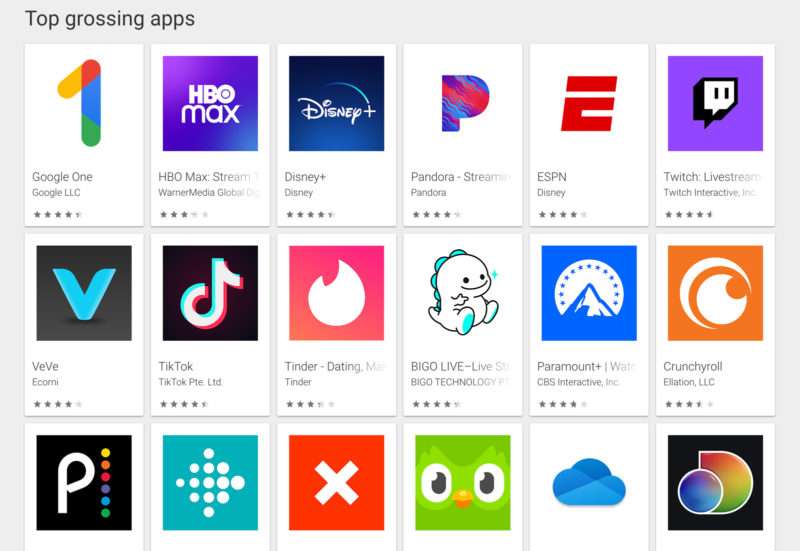
This means two things: that the mobile app business is predicted to continue growing exponentially and that the competition for users’ dwindling attention spans in a crowded market will also continue to grow.
This makes it paramount to understand how mobile apps can benefit a modern business as well as how to create a mobile app to hold your users’ attention.
Mobile apps provide businesses with a variety of advantages that can significantly enhance their growth and customer engagement.
Through an app, businesses can offer personalized experiences to their customers, leading to increased loyalty and retention.
Apps also enable businesses to send push notifications for effective real-time communication about promotions, new products, or updates.
E-commerce capabilities can simplify the buying process, driving more sales.
With features like feedback and reviews, businesses can gain valuable insights into customer preferences and improve their services or products accordingly.
Additionally, mobile apps provide opportunities for brand reinforcement, improving visibility, and establishing a direct marketing channel. These benefits combined make mobile apps a potent tool for businesses in today’s digital era.
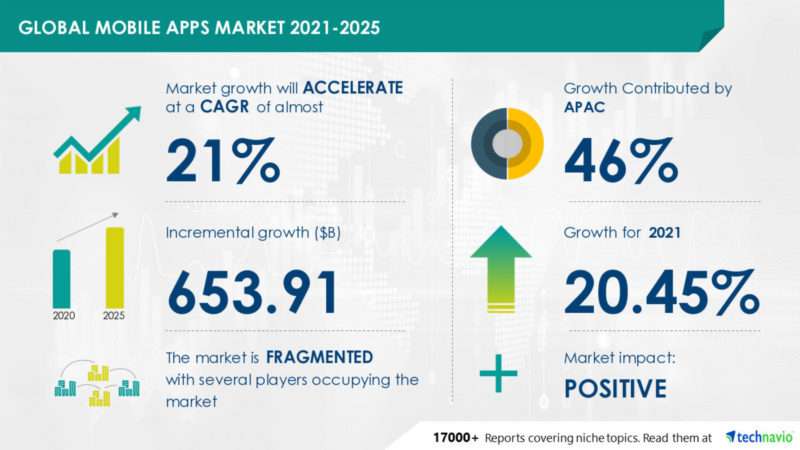
2.1 Communication
Mobile apps can help your brand expand.
Marketing and promotional opportunities aside, communication with customers establishes a form of engagement that allows you to control the user experience to achieve your objectives.
For example, your app provides a service that customers hopefully use frequently.
By engaging with your brand regularly, users also engage with your business’s message through the services the app offers.
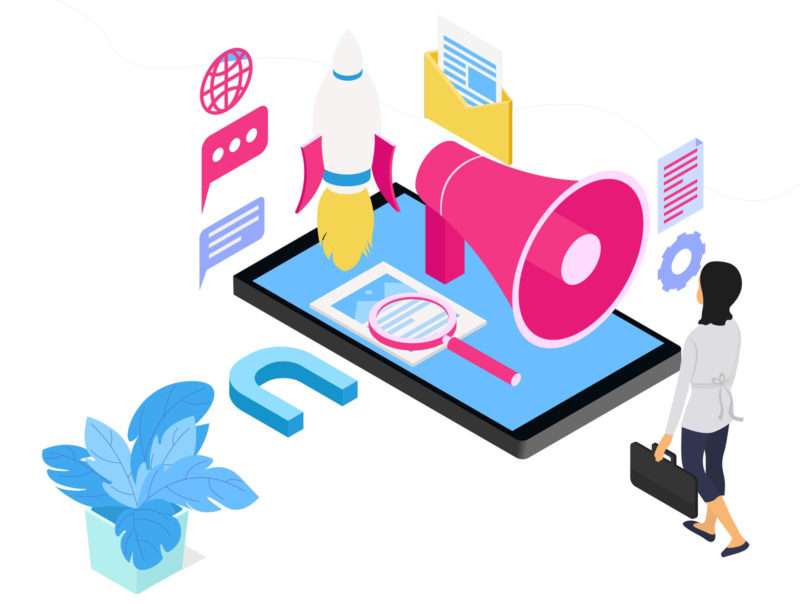
By keeping a direct channel of communication open between a business and a customer, mobile apps increase customer engagement and give them opportunities to engage back.
This means that if a customer has a concern or complaint, a business’s app provides an opportunity for them to voice it.
PRO TIP:
Timing is everything in customer service, which translates directly to extending or shortening your customers’ lifetime value to your company. The more quickly that your own business can hear out a customer and resolve their complaint, the more satisfied they’ll be.
2.2 Sales
In the realm of sales, apps have both direct and indirect ways of improving your business’s performance and overall creating a successful business.
Over two billion people bought goods and services from the internet in 2020, creating an eCommerce sales total of $4.2 trillion.
Mobile apps can tap into the growing number of users who prefer the online shopping experience to a conventional in-store one, particularly after the pandemic.
A mobile app allows you to control the user experience from the customer’s mobile phones or device of choice. Increasing mobile sales through a new app is a sustainable way to increase profits in the 2020s.
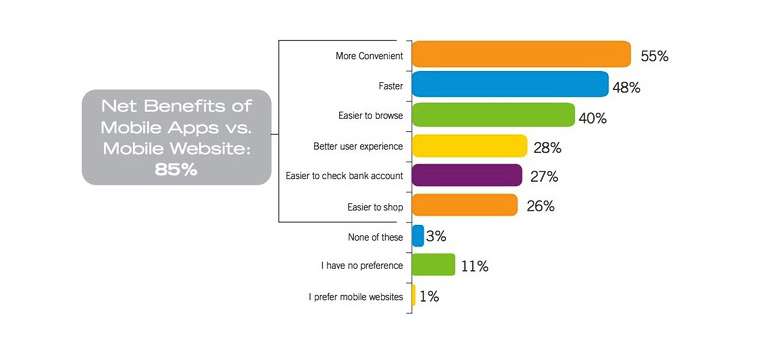
Photo Credit: econsultancy.com
This comes not only from direct sales but from the indirect effect of increasing customer satisfaction through engagement.
As they continue to use the app, assuming it has been designed well (see below), the experience can translate into an increase in demand for your services.
2.3 Advertising
Ad revenue alone on mobile apps totaled $581.9 billion in 2020. Not only can a mobile app increase sales directly through the app, but the advertising opportunities should be considered as well.
As we mentioned, mobile apps create a consistent line of communication between many businesses and customers. A solid presence on mobile gives customers an interface tailormade to the pace of their personal buying cycle.
They can absorb ads at their own pace, shop in comfort, and communicate at will with your company.
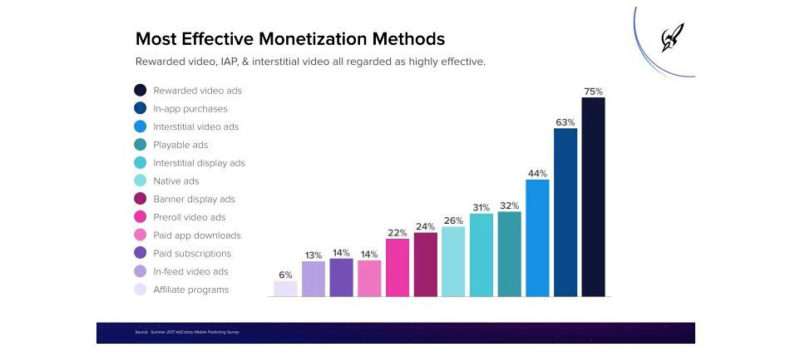
2.4 Client Loyalty
Building client loyalty through a mobile app primarily revolves around improving customer engagement, personalizing the customer experience, and providing added value.
Engagement can be achieved through consistent and easy-to-navigate design, swift and effective customer service, and a platform that encourages customer interaction.
Personalization, like custom content and preferences, can make users feel valued and understood, fostering a more profound connection with the brand.
Moreover, the app can provide value in the form of loyalty programs, where customers earn points or rewards for using the app, making purchases, or sharing with friends.
These rewards can then be redeemed for products, discounts, or other benefits. Such programs incentivize repeat business and can create a sense of exclusivity and appreciation.
The ability of a mobile app to provide a direct, always-available link between the business and the customer can significantly strengthen client loyalty, as it allows for a highly tailored and convenient customer experience.
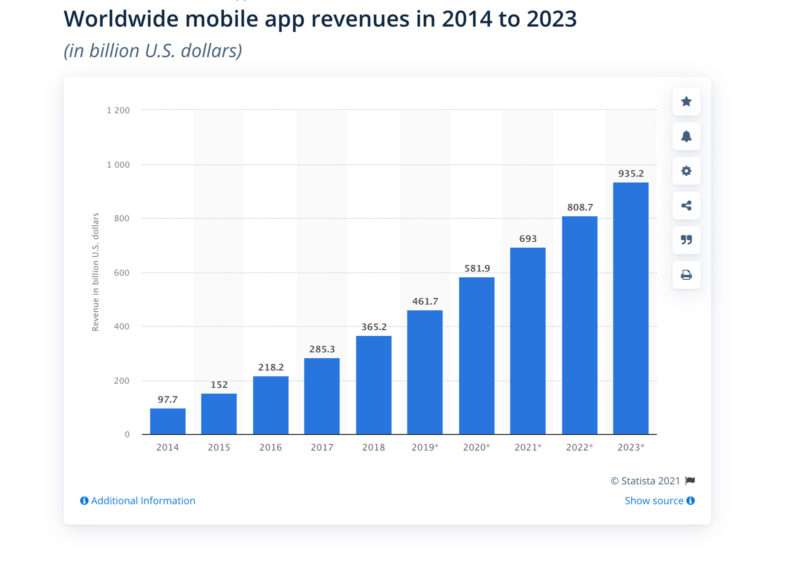
PRO TIP:
There are many kinds of client loyalty programs, not all of which require customers to sign up. Gifts, limited-time discounts, vouchers, and more can encourage client loyalty to your brand.
2.5 Analytics
A mobile app allows you to collect important data on your customers’ shopping and browsing habits. You can monitor how customers use your application and change it accordingly.
For example, you can conduct usability and functionality tests that show where your customers click, where they scroll, and where they leave the pages of your app.
This allows you to refine your app’s functionality.
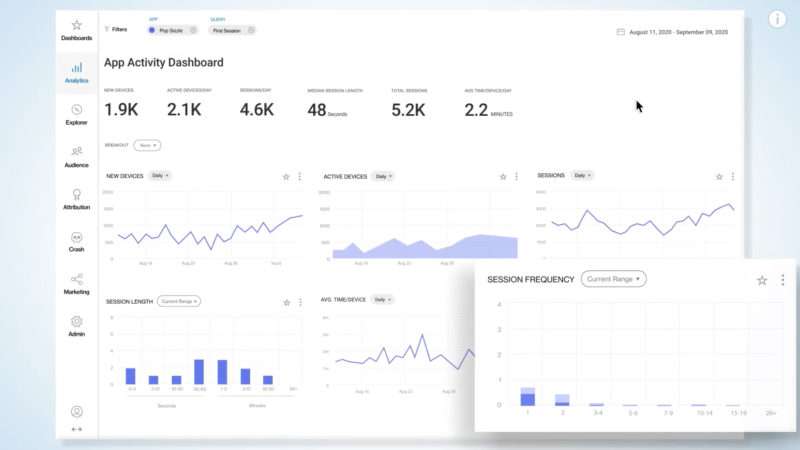
Analytics can also put you ahead of your competition in the broader sense of your industry. Modern technology that assesses your performance can help you improve it.
Everything from your app’s marketing channel to its product sales can be improved with usage analytics.
So we’ve discussed the benefits that businesses can generate using a mobile app, but these benefits, as well as the way your business can use them, will change drastically depending on the type of app you create.
Here are the primary types of apps that your business can design to meet its objectives.
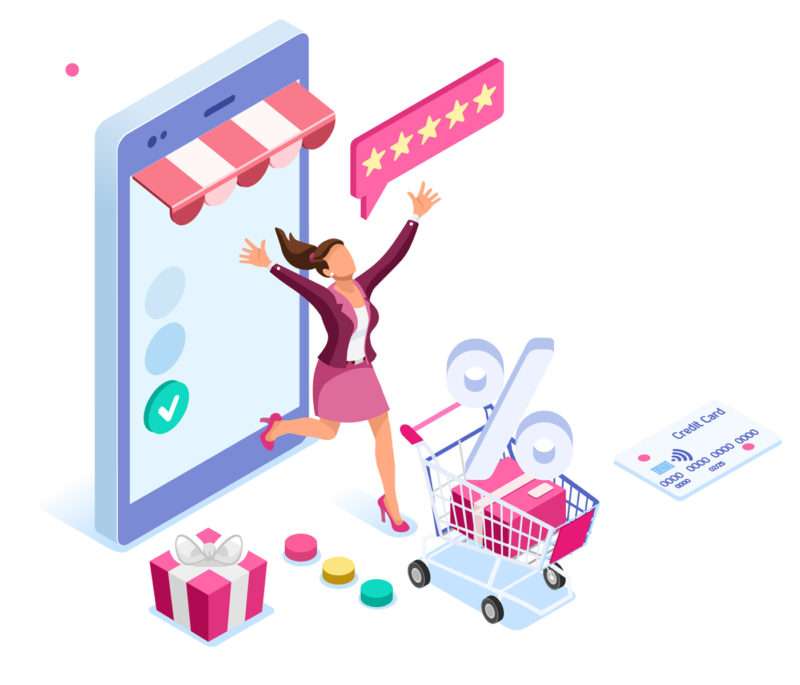
3.1 Loyalty App
We discussed above how mobile applications can increase customer loyalty.
Your mobile app idea may be no more complicated than creating a place for your customers to engage with your brand and be rewarded for their engagement.
Restaurants like Starbucks thrive on loyalty apps, though any business can use them. Incentivizing brand engagement leads to more engagement.
To increase loyalty, businesses use anything from limited time offers to gift vouchers to free products (after a minimum amount of spending).
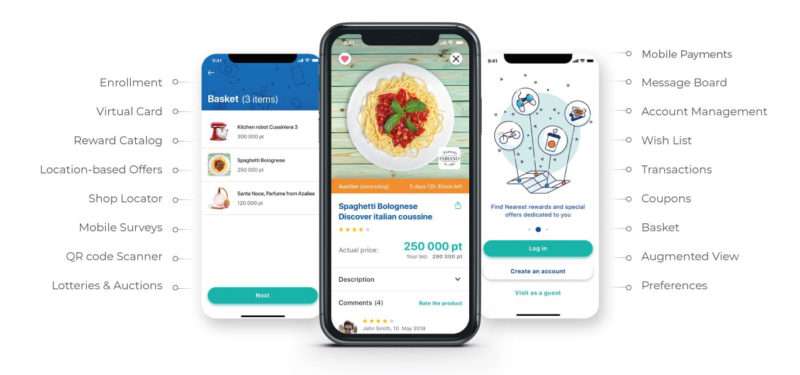
Photo Credit: comarch.com
3.2 Task Resolution App
Task resolution apps provide customers with ways of using a business’s remote services. Depending on the services you offer, task resolution can be the defining factor that brings customers back to your app.
For example, your app may allow car owners to remotely track or activate features on their car. You may provide businesses the ability to give their employees access to the company database
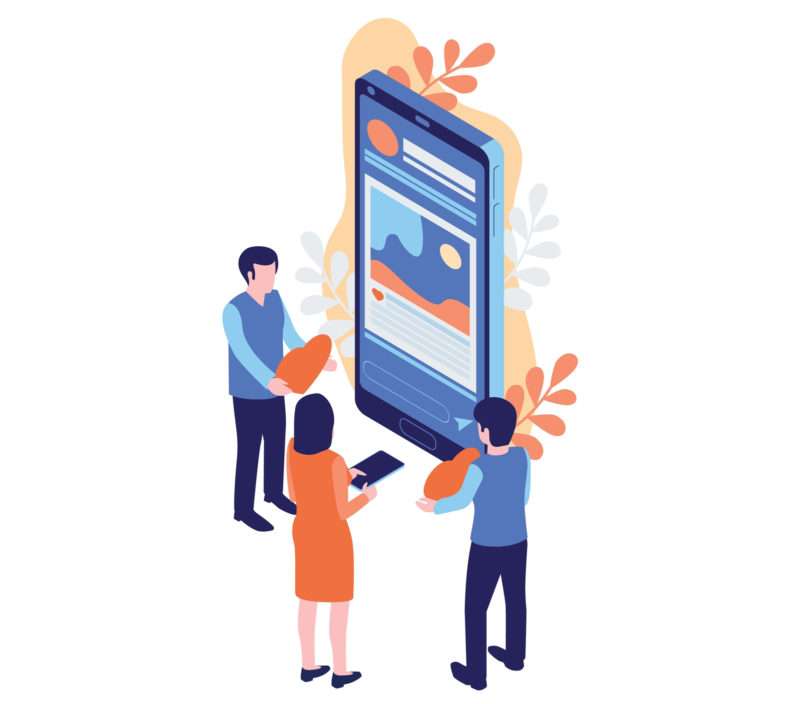
PRO TIP:
Task resolution can also be useful for companies that provide eCommerce shopping services by allowing customers to remotely access features of the store.
3.3 Customer Service App
Customer service apps have the same basic model as task resolution apps but for the specific purpose of contacting your service team and asking questions or resolving issues.
These apps can factor majorly in your goal to use your app to encourage customer loyalty, extend your customers’ life cycle, and increase your brand’s reputation.
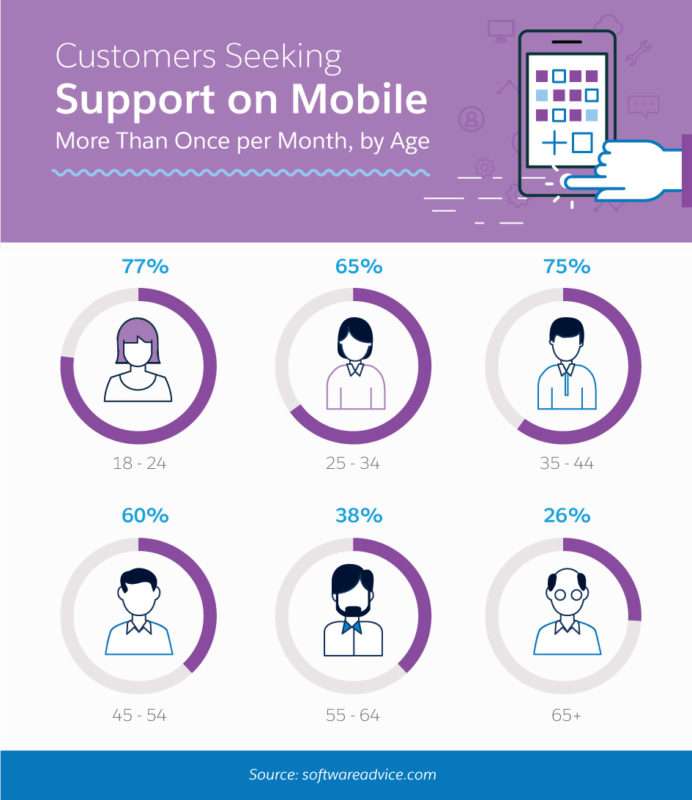
Chatbots are also a common way to create a customer service app. Chatbots allow you to automate many common requests while providing a direct route to your customer service team.
This takes some of the strain off your customer service representatives while providing your customers helpful information outside of business hours.
3.4 Entertainment App
An entertainment app can hide promotions behind entertainment without the use of incentives, rewards, or services.
The Coca-Cola Freestyle app is a prime example.
The app allows you to select your drink flavor on mobile phones and commence contactless pouring from the freestyle electronic drink dispensers at restaurants with the push of a button.
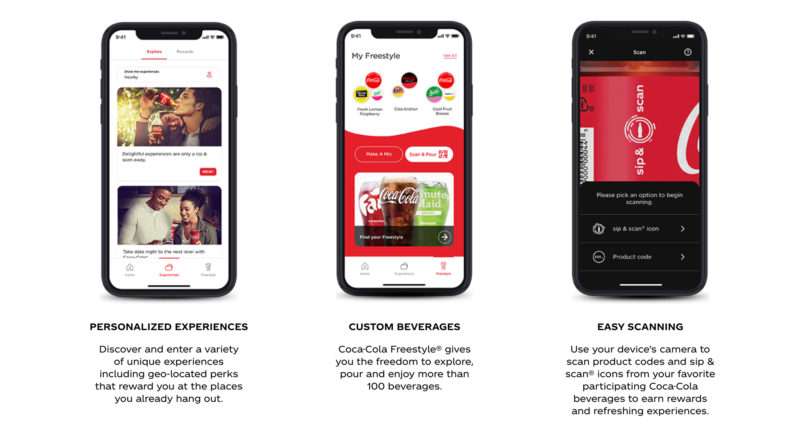
The app was rolled out to promote sanitary conditions at restaurants during the pandemic.
In the future, it’ll continue to be an entertaining way to increase customer loyalty for Coke behind the distracting screen of a cute application.
PRO TIP:
Timing is everything in customer service, which translates directly to extending or shortening your customers’ lifetime value to your company. The more quickly that your own business can hear out a customer and resolve their complaint, the more satisfied they’ll be.
3.5 Content App
The final type of app your business can create is a content app. These apps can be used to share content like demonstrations, photos, videos, and more.
These apps are great for engagement-focused businesses.
Craft brands can post DIYs, restaurants can post recipes and tutorials, education businesses or institutions can post learning materials.
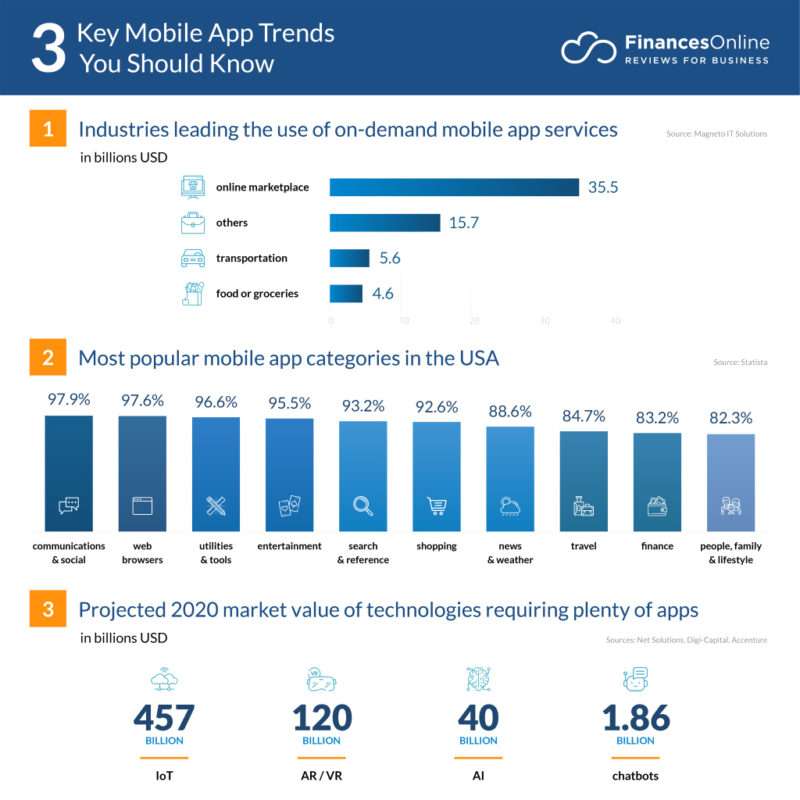
The list goes on for the possibilities of apps that provide pure content to consumers without any obvious storefront or ad space.
By creatively engaging with customers, content apps can boost client loyalty without the need for tangible rewards.
No matter the type of app your business hopes to use, the process of designing your mobile app idea should make the same fundamental considerations.
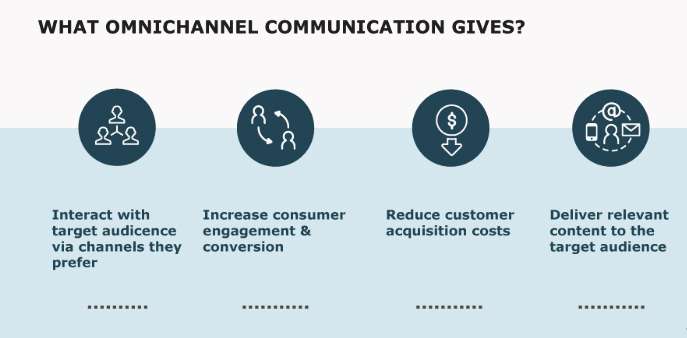
Photo Credit: revechat.com
4.1 Create a Useful Service
An app’s usefulness can translate directly to an increase in users. Based on your brand, your job is to devise features that will encourage engagement.
For instance, an app promoting a film or product may provide easy access to marketing materials or an entertaining way to engage with the product.
A health foods company might create a weight-tracking app.
No matter the type of app, its usefulness to your target audience will drive conversions.
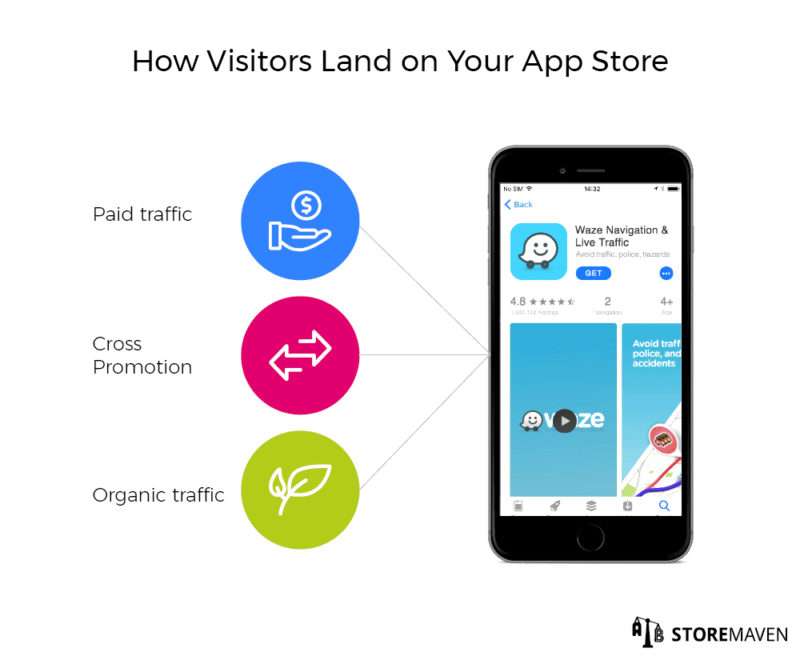
4.2 Create a Unique Experience
We already mentioned that 218 billion apps were downloaded last year. This means that the mobile app space is more competitive than ever.
Users crave unique experiences.
By coming up with a brand-specific unique function, you can drive both engagement and sales with functionality.
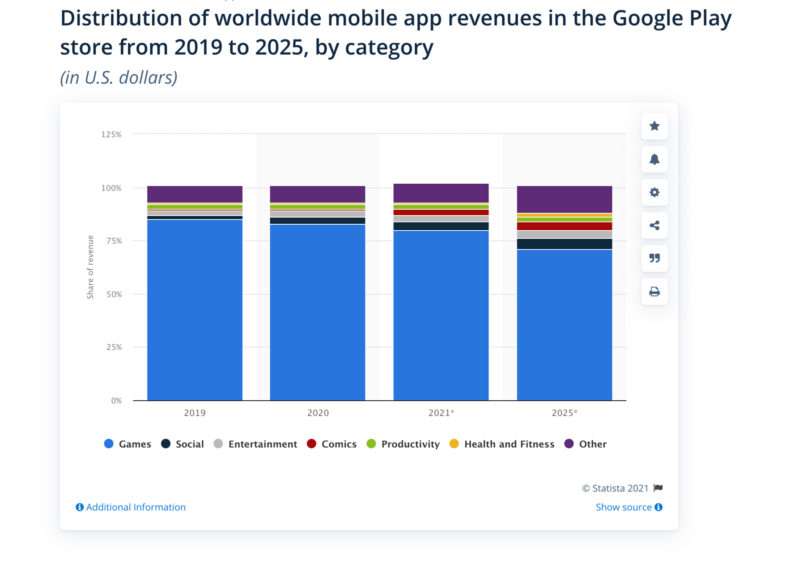
For example, a clothing brand could provide an app that allows customers to try on clothes virtually.
A furniture retailer could create one on which users can customize furniture, view it in their living space, and order it, all from the same app.
4.3 Engage Customers
Engagement is key in mobile app development for modern businesses. Small local businesses can take just as much advantage of mobile app engagement as large ones.
Despite the development costs, a small restaurant, for example, can allow customers to earn rewards, order online, and track their reservations through a mobile app just as well as a large restaurant.
In an increasingly competitive industry, the engagement created by mobile apps can recoup the cost of developing one.
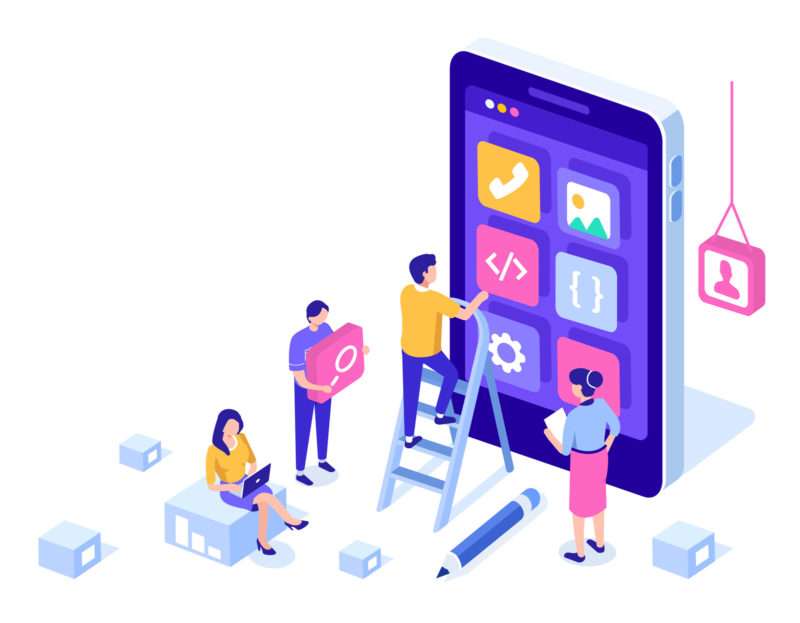
4.4 Direct Promotion
Figuring out how a mobile app can directly promote a business’s products or services can be a simple route to engagement. If nothing else, apps can be extensions of any business’s storefront as well as a highly controlled marketing space.
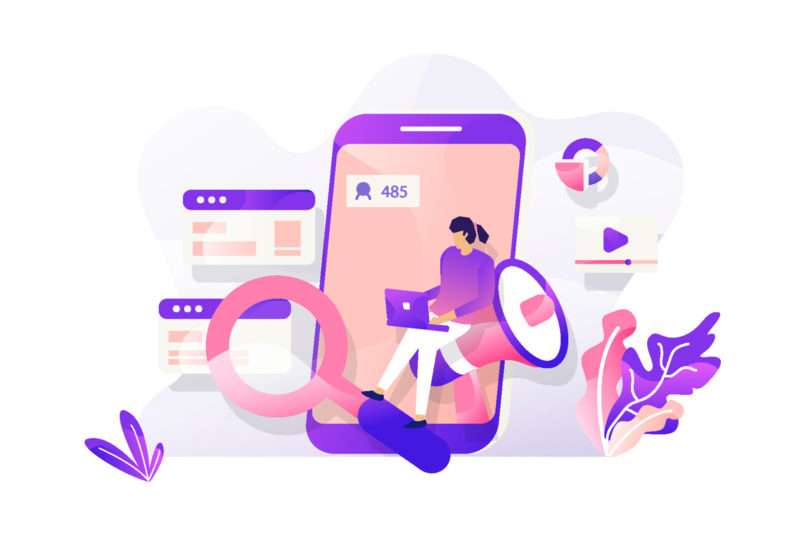
Creating a working app for your business model can offer opportunities for unique customer engagement as well as direct promotion for your store.
Google Play and Apple have become competitive stores where businesses list hundreds of apps every day due to their usefulness as marketing and engagement tools.
To stand out for more than your team’s tech skills, consider how your app can be most useful and unique to your target audience.
By connecting your business’s services to your customers’ needs, mobile applications can increase conversions as well as drive your customers’ long-term relationship with your brand.
Not sure where to start? Our Simple Starter package can help you move forward with your app idea by providing detailed technical documentation, wireframes, and market analysis.
What opportunities do you see in the mobile app market?




